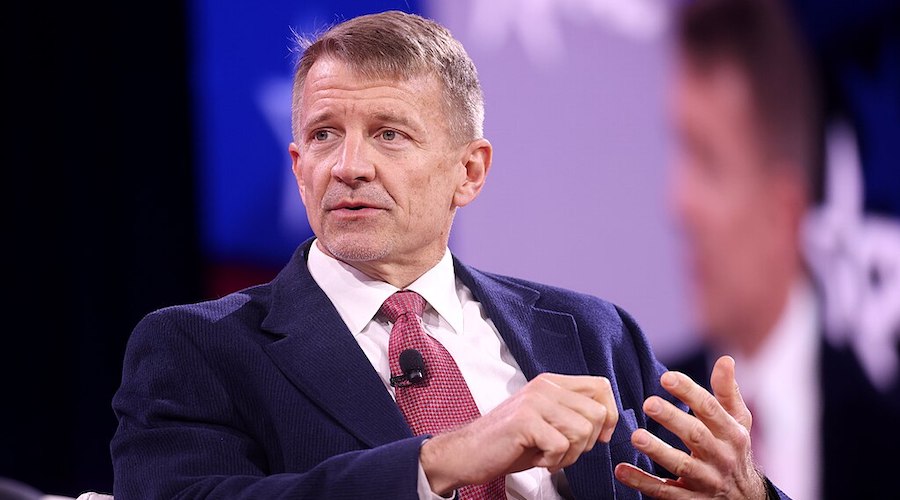Former Blackwater chief executive officer and Donald Trump supporter, Erik Prince, will lead a team helping the Democratic Republic of Congo (DRC) secure and tax its extensive mineral wealth, according to a Reuters report confirmed by multiple diplomatic and government sources.
The deal, finalized in January 2025, focuses on the mineral-rich Grand-Katanga region in southern DRC—far from the eastern territories currently embroiled in conflict with M23 rebels. The initiative marks Prince’s return to Africa’s security landscape, years after his controversial exit from Blackwater, whose contractors were convicted of killing Iraqi civilians in 2007. The men were later pardoned by former U.S. President Donald Trump in 2020.
Sources familiar with the agreement indicate that Prince’s team will prioritize securing mining operations and plugging tax revenue leaks in Kolwezi, a key mining hub near the Zambian border. According to a senior Congolese official, the region loses an estimated $40 million each month due to mineral smuggling. “After Goma became unfeasible, Prince’s advisers redirected their strategy to Kolwezi,” the official said.
A diplomat involved in the matter told Reuters that the first phase of the operation will be focused on large-scale mines in Katanga, with the possibility of expanding if the mission proves successful. Though the exact number of personnel involved has not been disclosed, a source close to Prince confirmed the deployment of advisers and technical experts in the coming weeks.
A senior official in the DRC presidency confirmed a preliminary agreement has been signed, signaling the government’s strategic shift toward securing its vast natural resources, which are critical to global supply chains for electric vehicles, smartphones, and renewable energy technologies.
This move comes amid broader negotiations between Kinshasa and Washington. In February 2025, the two governments began discussing a minerals-for-security arrangement, aimed at reducing China’s grip on the DRC’s cobalt, copper, and lithium reserves while containing the rise of M23 insurgents in the east.

Speaking in Kinshasa on April 17, U.S. Africa envoy Massad Boulos said the U.S. supports Congo’s efforts through both diplomacy and investment. “We aim to secure lasting stability and promote U.S. investment,” Boulos stated, underscoring Washington’s growing concern over instability and foreign influence in the DRC’s mining sector.
A Congolese official suggested that Prince’s deal could be integrated into the broader U.S. framework, though it may require adjustments to align with American strategic and regulatory standards.
The DRC is the world’s largest cobalt producer, with 220,000 tonnes of the metal mined last year, according to the US Geological Survey.The country also produces nearly 70% of the world’s tantalum, extracted from coltan. Its eastern provinces hold significant reserves of tin, tungsten, and additional coltan deposits.
Coltan mining in the region has long been linked to environmental destruction, human rights abuses, and deadly violence. Reports continue to surface of child labour in dangerous conditions, raising serious concerns about the ethical sourcing of these essential minerals


